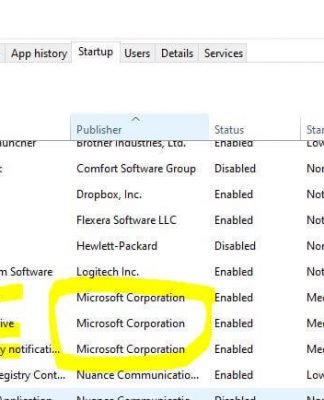Well, you have decided to give your son or daughter a summer camp abroad, congratulations! You will be able to learn a new language, immerse yourself in a new culture, become more independent and make friends from all over the world for life.
But your work as a father has just begun. How can you make sure your child is as well prepared as possible for summer camp abroad? Here you will find the answers to the questions that parents ask us most frequently. They will help you to ensure that your child gets the most out of their trip.
-
Table of Contents
Find information on your own to be as prepared as your child
There are many things parents need to know about their child’s journey, so they should make the most of the resources available to them. To find out what your child is going to do this summer, it is best to attend a pre-trip meeting. They are designed to give as much practical information as possible and to enable parents to ask questions.
You will also find all the information you may need on our website , and you can always call or visit your nearest EF office .
-
Talk to your child about money and the budget
When it comes to the money you should give him for his travel expenses, there is no “right amount”, it all depends on what he plans to buy. As in many language trips, almost everything is included in the price: food, accommodation, classes, flights, transport and activities. Therefore, a large amount of spending money should not be necessary.
However, it’s a great time to talk to your child about budgeting and spending. You can agree with him on a rough budget for the whole trip and break it down into what he can spend for shopping and how much he can spend per day or week, to make sure he doesn’t spend it all at once. You should also tell him to set aside a set amount of money for emergencies.
In some destinations, a half-board meal plan is included, which will influence the amount of money your child may need. Many activities are also included in the price of the trip, but there are often additional activities that are not included. In this case, we recommend that you book in advance the excursions that interest you, so you can enjoy the experience without having to spend money once you are there. Without taking into account additional activities, we recommend an average budget of 150 euros per week in Europe, 150 US dollars per week in the United States.
-
Rest assured that your child will be safe during their journey
For us, the safety of our students is our top priority. An EF group leader will meet your child at the airport and travel with the group to the destination. Once they have arrived in the city, our team will be ready and available at all times for students, including teachers, activity leaders and EF accommodation managers.
We’ve also put together a list of guidelines, which we call the EF Rules. Before traveling with us, we ask parents and children to read them carefully and sign them. We recommend that you review the rules with your child to ensure that he fully understands them and takes them into account during the trip.
-
The first three days are the most difficult, so both you and your child must be prepared
After what could be a long journey, your child will arrive at a totally different place for him. Seeing yourself in a different country with so many unknown people can be overwhelming. Sometimes students take a while to adapt, especially considering that the people around them communicate in a language that is not their native language.
If he has a hard time adjusting, remind him that it will help to talk to a group leader or any other staff member. They are always around to ensure students have a great experience, and have the expertise to support them when they are homesick.
It’s natural that you want to keep in touch with your child on a regular basis, especially at the beginning of the trip. It would be good if you could agree with him before the trip on how often you will be in contact. Don’t forget that students have a full schedule of classes and activities throughout the day. Your child will be busy, so sometimes it’s better to send a few texts than to make a long call. We recommend that you don’t call every day, as it might make it harder for your child to adjust to his new surroundings, and it might also make him miss his home.
-
Help your child with the luggage for the trip
First of all, keep in mind that you will have to carry your luggage and that your plane ticket only includes one suitcase, so you must make sure that the suitcase is not too heavy or large. It’s common to overpack when helping a child prepare for a trip. Each airline has its own rules regarding luggage and the maximum weight allowed, which ranges between 20 and 23 kilos. Check with the airline to see what the maximum limit is and weigh the bag before it leaves to make sure it is within those limits.
It’s always good to leave some room in your suitcase for souvenirs, as your child will likely want to bring souvenirs from their trip.
With that said, here’s our recommended packing list:
For checked baggage:
- A few warm clothes: a light sweater and a jacket (even for hot countries, it can get cold at night)
- Jeans and long pants
- A few sweatshirts, t-shirts, and tops
- shorts, skirts
- EF Clubwear
- underwear, socks
- An umbrella or raincoat, you never know when it might rain!
- Shoes, plus flip-flops and sneakers
- Swimwear, beach towel, sunglasses
- Toiletries and sunscreen (we strongly recommend that you wear a protection factor of 30 or higher for Australia, Malta and Saint Raphaël)
- If your child is going to stay with a local host family, it may be nice to bring them a gift
For hand luggage
- Charger and power adapter (particularly for Europe)
- Travel documents, including passport and visa if necessary and for minors the SAM format is needed. EF group leaders have the plane tickets, so you don’t have to worry about that
- Any medication or prescription your child needs
- Some cash in local currency, a credit card and your Erika insurance card
- Camera, cell phone and a copy of the EF student manual
-
Notify your allergies and special dietary needs in advance
If your child has any health problems or dietary restrictions, let EF know as soon as possible and we will make the necessary arrangements. Please do not wait until the day before the trip, as we need to notify the group leader and destination staff. In some cases, you may have to pay a dietary supplement.
-
Use our online platforms before your child’s departure
Our online student portal has many advantages. By logging into our online platform, your child will be able to see who is in her group and get in touch with them before the trip. He will also be able to take an online placement test, which we use to make sure students are at the right level.
Parents can also access all the information they need to prepare themselves and their children for the trip. There you can read all the details about your children’s destination and review frequently asked questions. All the forms are available on the platform, from where you can also hire packages of additional activities and excursions, in addition to travel insurance.
If you need more information, don’t hesitate to contact your EF advisor. We have a friendly and experienced staff that will be at your disposal to answer your questions and explain all the details.















